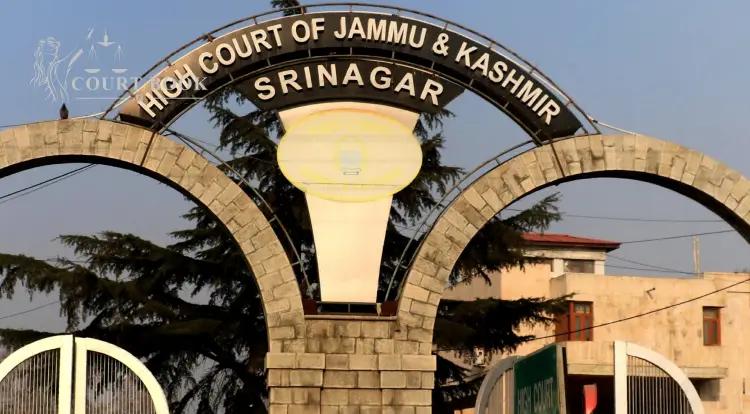In a significant ruling, the Jammu and Kashmir High Court held that a complainant’s participation in the initial stages of proceedings under the Negotiable Instruments Act (NI Act) does not mean that they have accepted the jurisdiction of the trial magistrate. The court emphasized that jurisdiction under the NI Act cannot be assumed merely by the parties’ conduct or participation.
The court made this clarification while hearing a petition challenging the territorial jurisdiction in a case filed under Section 138 of the NI Act and Section 420 of the Ranbir Penal Code (RPC) (pertaining to cheating).
Read also: Accused Can’t Be Detained Just Because He Got Bail: J&K High Court’s Strong Stand
Background of the Case
The petitioner approached the High Court to challenge a criminal complaint filed against him and his firm, M/s ANN Infrastructure. The complaint was filed under Section 138 of the NI Act and Section 420 RPC.
It was alleged that the petitioner had issued a cheque of ₹60 lakhs from his Axis Bank account to clear dues owed to the respondent. However, the cheque, presented through ICICI Bank, was dishonoured on 30.09.2020, with the bank returning it with the remark: “Title of account required.”
Following this, the respondent filed a complaint before the Judicial Magistrate 1st Class, Jammu, who, on 24.07.2021, took cognizance of the complaint and issued process (summons) to the petitioner.
The petitioner challenged the proceedings, specifically raising an objection to the territorial jurisdiction of the court. He argued that the cheque was presented at ICICI Bank, Sector 128, Noida, Uttar Pradesh, where the payee maintains their account. Thus, he contended that the Trial Magistrate at Jammu had no jurisdiction to entertain the case.
The respondent opposed this argument, claiming that since the petitioner had already participated in the proceedings and submitted an affidavit evidence, he could not now challenge the court's jurisdiction. The respondent also cited previous case laws in support of this argument.
The case was heard by Justice Sanjay Dhar, who rejected the argument that participation in proceedings implies acceptance of jurisdiction.
“It cannot be said that the petitioner has acquiesced to the jurisdiction of the Magistrate merely by filing an affidavit, especially when the proceedings are still at the initial stage and no cross-examination has taken place,” the Court observed.
The court emphasized that jurisdiction is a matter of law, and cannot be conferred by consent of the parties or their conduct.
“Where the Court inherently lacks jurisdiction, the same cannot be assumed through the conduct of the parties,” the bench stated.
Further, the court noted that the precedents relied upon by the respondent were not applicable, as they did not specifically relate to the Negotiable Instruments Act. In those cases, jurisdiction was challenged after the final decision had already been made by the authorities.
The court delved into the interpretation of the word "delivered" in Section 142(2)(a) of the NI Act to decide which court had jurisdiction in a cheque dishonour case.
The High Court clarified:
“The term ‘delivered’ in this provision does not carry much significance. What is more relevant is the phrase ‘for collection through an account’. This means that jurisdiction lies with the court where the cheque is presented for collection—i.e., where the payee maintains the account, not simply where the cheque is handed over.”
This reading makes it clear that Section 138 cases must be tried in the local court where the cheque was presented for collection through the bank account of the payee.
Considering all facts and legal provisions, the High Court allowed the petition and quashed the proceedings initiated by the Judicial Magistrate 1st Class, Jammu, due to lack of territorial jurisdiction.
“The Court where the payee maintains the account is the competent court to try the case under Section 138 of the NI Act,” the Court concluded.
APPEARANCE:
Vishal Kapoor, Advocate For Petitioner
Sunil Sethi, Sr. Adv. with
Mr. Navyug Sethi. For Respondents
Case-Title: Aditya Malhotra vs Dharminder Singh , 2025















